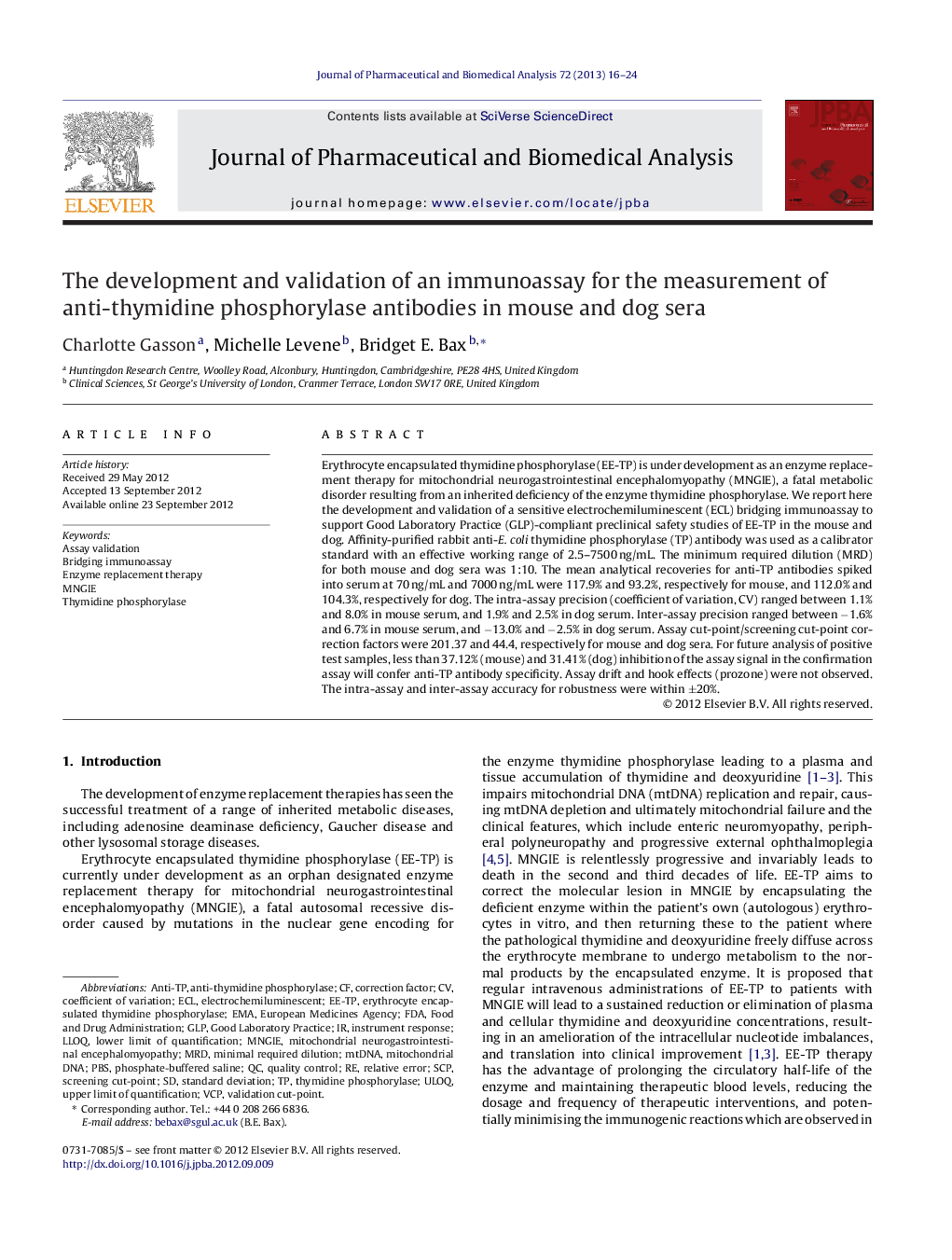| Article ID | Journal | Published Year | Pages | File Type |
|---|---|---|---|---|
| 1221573 | Journal of Pharmaceutical and Biomedical Analysis | 2013 | 9 Pages |
Abstract
Erythrocyte encapsulated thymidine phosphorylase (EE-TP) is under development as an enzyme replacement therapy for mitochondrial neurogastrointestinal encephalomyopathy (MNGIE), a fatal metabolic disorder resulting from an inherited deficiency of the enzyme thymidine phosphorylase. We report here the development and validation of a sensitive electrochemiluminescent (ECL) bridging immunoassay to support Good Laboratory Practice (GLP)-compliant preclinical safety studies of EE-TP in the mouse and dog. Affinity-purified rabbit anti-E. coli thymidine phosphorylase (TP) antibody was used as a calibrator standard with an effective working range of 2.5-7500 ng/mL. The minimum required dilution (MRD) for both mouse and dog sera was 1:10. The mean analytical recoveries for anti-TP antibodies spiked into serum at 70 ng/mL and 7000 ng/mL were 117.9% and 93.2%, respectively for mouse, and 112.0% and 104.3%, respectively for dog. The intra-assay precision (coefficient of variation, CV) ranged between 1.1% and 8.0% in mouse serum, and 1.9% and 2.5% in dog serum. Inter-assay precision ranged between â1.6% and 6.7% in mouse serum, and â13.0% and â2.5% in dog serum. Assay cut-point/screening cut-point correction factors were 201.37 and 44.4, respectively for mouse and dog sera. For future analysis of positive test samples, less than 37.12% (mouse) and 31.41% (dog) inhibition of the assay signal in the confirmation assay will confer anti-TP antibody specificity. Assay drift and hook effects (prozone) were not observed. The intra-assay and inter-assay accuracy for robustness were within ±20%.
Keywords
EMAMRDGLPVCPECLSCPMNGIEULOQElectrochemiluminescentFDAPBSLLOQMitochondrial DNAenzyme replacement therapyEuropean Medicines agencystandard deviationMitochondrial Neurogastrointestinal EncephalomyopathyAssay validationGood Laboratory PracticeThymidine phosphorylaseupper limit of quantificationlower limit of quantificationrelative errormtDNAFood and Drug AdministrationCoefficient of VariationCorrection factorPhosphate-buffered salinequality control
Related Topics
Physical Sciences and Engineering
Chemistry
Analytical Chemistry
Authors
Charlotte Gasson, Michelle Levene, Bridget E. Bax,
